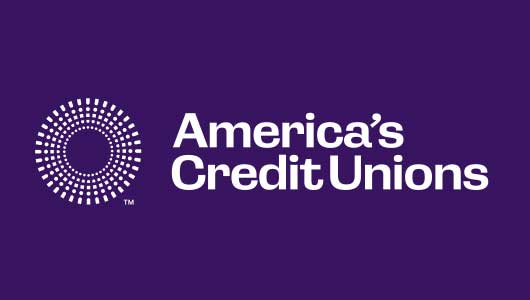
CFPB supervisory highlights target fees
Agency addresses examination findings in the areas of deposits, auto servicing, and remittances.
The Consumer Financial Protection Bureau (CFPB) issued a Supervisory Highlights Junk Fees Update Special Edition in October 2023 to apprise the public on supervisory work completed since the agency published the March 2023 Issue 29 Supervisory Highlights Junk Fees Special Edition.
This 31st edition of supervisory highlights covers examination findings in the areas of deposits, auto servicing, and remittances that generally were completed between February 2023 and August 2023. The report also describes risks identified in connection with payment platforms that parents, guardians, and students use to pay for school lunches.
CFPB publishes supervisory highlights periodically to share recent examination findings to help financial institutions and the industry recognize and identify risks to consumers and comply with federal consumer financial law. The publications also include information about recent enforcement actions arising from the agency’s supervisory activities, while maintaining the confidentiality of supervised entities.
In January 2022, CFPB issued a request for information regarding fees imposed by providers of consumer financial products or services to shape the agency’s rulemaking and guidance agenda. The agency expressed an interest in hearing about people’s experiences with fees associated with their financial institution, prepaid or credit card account, mortgage, loan, or payment transfers, including:
- Fees for items people believed were covered by the baseline price of a product or service.
- Unexpected fees for products or services.
- Fees that seemed too high for the purported service.
- Fees where it was unclear why they were charged.
Pursuant to this initiative into what CFPB has characterized as exploitative fees charged by some entities, the agency issued its first Supervisory Highlights Junk Fees Special Edition in March 2023. The findings in that report covered examinations involving fees in the areas of deposits, auto servicing, mortgage servicing, payday and small dollar lending, and student loan servicing completed between July 1, 2022, and Feb. 1, 2023.
This special edition provides an update on supervisory work completed since the March 2023 edition was issued. It finds that for the topics covered in the October 2023 edition, institutions refunded more than $140 million to consumers, $120 million of which was for surprise overdraft fees and double-dipping on nonsufficient funds (NSF) fees.
The key supervisory findings noted by CFPB examiners in this Fall 2023 special edition include deposits, auto servicing and remittances.
Deposit and NSF fees
When examining depository institutions and service providers, CFPB reviewed certain fees related to deposit accounts to assess whether supervised entities engaged in any unfair, deceptive, or abusive acts or practices (UDAAPs) prohibited by the Consumer Financial Protection Act of 2010, focusing on NSF and overdraft fees.
The examinations examined core processors in their capacity as service providers because the system functionality they develop can direct many fee practices, including NSFs. Findings indicate that core processors engage in UDAAPs when the core service platform allows the assessment of unfair NSF fees on re-presented items.
System limitations didn’t allow financial institutions to refrain from charging more than one NSF fee per item without discontinuing NSF fees completely or manually waiving individual fees. This practice is a UDAAP because it caused injury to consumers, consumers could not reasonably avoid these fees, and any countervailing benefits did not outweigh the consumer injury.
To address these findings, core processors enhanced the systems to facilitate financial institutions’ implementation of policies to eliminate NSF re-presentment fees.
CFPB will also review practices of financial institutions seeking payment from the consumer’s financial institution, known as “originating depository financial institutions,” to confirm that represented transactions are coded properly to enable systems to identify the relevant transactions and cease charging NSF fees on those transactions.
In examinations of financial institutions, CFPB found UDAAPs when consumers were charged re-presentment NSF fees without having a meaningful opportunity to prevent another fee after the first failed representment attempt. The CFPB noted that this finding is consistent with its public action against Bank of America.
Although CFPB recognized that while some financial institutions may have proactively developed plans to remediate consumers for re-presentment NSF fees that were assessed, a few of these financial institutions used incomplete reports that didn’t capture all re-presentment NSF fees charged.
For example, some reports captured consumer accounts that were charged NSF fees on checks only, or on both checks and automated clearinghouse (ACH) transactions. However, these reports missed accounts that were assessed NSF fees solely on ACH transactions.
Once notified of these issues, financial institutions reviewed their remediation methodologies to guarantee coverage of both ACH and check re-presentments. Since the CFPB initiated this set of work in 2022, financial institutions have refunded more $22 million to consumers, and many financial institutions have reported plans to stop charging NSF fees altogether.
NEXT: Unfair unanticipated overdraft fees
Unfair unanticipated overdraft fees
The examinations have continued to cite UDAAPs for charging unfair unanticipated overdraft fees, such as authorize-positive settle-negative (APSN).
APSN overdraft fees can occur when a financial institution assesses overdraft fees for debit card or ATM transactions where the consumer’s account showed a sufficient available balance when the consumer authorized the transaction, but the delay between authorization and settlement resulted in an insufficient balance at the time of settlement.
To remedy this violation, financial institutions are ceasing to charge APSN overdraft fees and have remediated more than $98 million to injured consumers since this work began in 2022.
Unfair statement fees
In recent examinations, CFPB found that financial institutions engaged in UDAAPs by assessing paper statement fees and returned mail fees for paper statements that were returned undelivered, or fees for paper statements they didn’t attempt to print and deliver.
Financial institutions will remedy these violations by discontinuing fees for paper statements and returned mail fees for paper statements they didn’t attempt to deliver, and will refund millions of dollars in those fees.
Surprise depositor fees
The examinations have also evaluated the returned deposit item fee practices at some financial institutions. This is a follow up to CFPB’s October 2022 compliance bulletin that stated it’s likely for a UDAAP to have a blanket policy of charging return deposit item fees, also known as surprise depositor fees, when a check is returned unpaid.
A financial institution might return a check for several reasons, including insufficient funds in the originator’s account, a stop payment order, or problems with information on the check. This practice is a UDAAP as consumers lack information about and control over whether a check will clear and so cannot reasonably avoid this injury.
Most of the financial institutions examined have advised CFPB that they have eliminated returned deposit item fees.
Treatment of pandemic relief benefits
The examinations have evaluated how financial institutions managed pandemic relief benefits deposited into consumer accounts, specifically whether consumers lost access to economic impact payments (EIP) and unemployment insurance benefits because of garnishment or setoff policies.
In response to any findings, financial institutions have refunded protected EIPs that were improperly taken to set-off fees, refunded garnishment-related fees improperly assessed for garnishment of EIPs, and updated policies to ensure compliance with applicable set-off and garnishment practices.
Approximately $685,000 has been returned to consumers for improper set off of EIPs and approximately $315,000 for improper garnishment-related fees.
Auto servicing
Examinations also included reviews of fee practices in connection with auto loans, such as UDAAPs related to auto servicers’ handling of refunds of add-on products after loans terminate early.
When a consumer purchases an add-on product at the time of the vehicle purchase, auto dealers and finance companies often charge for the entire cost of the add-on product at origination, and add the cost of the add-on product as a lump sum to the total amount financed. This means consumers often make payments on these products throughout the term of the loan, even if the product expires sooner.
Examinations have found UDAAPs when auto servicers failed to provide refunds on add-on products following early loan termination due to early payoff or repossession, or at any time when the consumer has lost use of the vehicle.
Consumers might not even be aware that the contract allows them to apply for refunds. As a result of these findings, auto servicers are remediating more than $20 million to affected consumers.
In addition to failing to provide refunds when appropriate, auto servicers also engaged in UDAPPs when they used miscalculated add-on product refund amounts after loans terminated early. This occurred when they used the wrong amount for the price of the add-on product or because they deducted fees, such as cancellation fees, which were not authorized under the contract.
Auto servicers are remediating consumers who have been impacted by this practice.
Remittances
Examinations also looked at activities of remittance transfer providers to confirm that fees are correctly disclosed and charged in accordance with Subpart B of Regulation E (the Remittance Rule). The Remittance Rule requires remittance transfer providers to disclose any transfer fees they charge.
By failing to disclose fees properly, the total wire amount the recipients received was lower than the amount that had been disclosed.
The Remittance Rule also requires a provider to refund to the sender any fees imposed in the event of an error. Examiners found that certain providers failed to correct errors by refunding fees within the required time frame.
Such financial institutions have implemented corrective action to prevent future violations and provided remediation as necessary to consumers charged fees.
The library of CFPB’s Supervisory Highlights can be found here.
PATRICIA O’CONNELL is lead compliance counsel for America’s Credit Unions.
